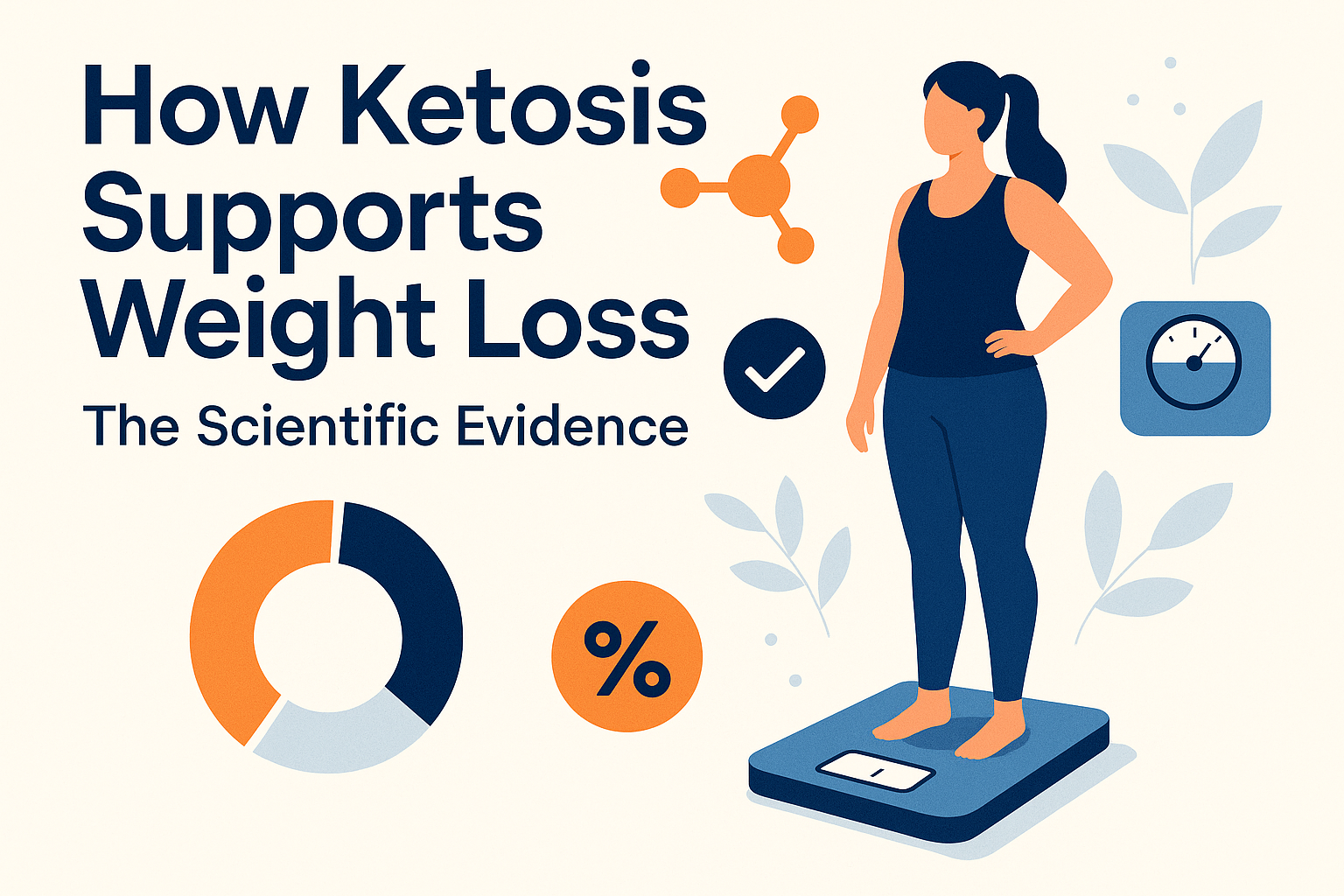
The ketogenic diet has become very popular for several good reasons. This style of eating has been demonstrated by science to work by causing the body to reach ketosis for slow and steady weight loss. If you know how ketosis supports weight loss, you can decide what to do for your health.
What is Ketosis?
Ketosis is a metabolic state where the body primarily burns fat for energy instead of carbohydrates. When there is not enough carbohydrate in the diet, fatty acids are made into ketone bodies by the liver, and these fuel the brain, muscles and different tissues.
As soon as glycogen levels drop, a person's body starts to convert fat into the main source of energy. As we will learn in the next sections, this process plays an important role in weight loss.
Increased Fat Burning
One of the primary mechanisms by which ketosis supports weight loss is through increased fat burning. Entering ketosis leads the body to make better use of the fat reserves stored in the body. This process is known as lipolysis which refers to the procedure in which triglycerides are changed into fatty acids and glycerol.
Numerous studies including this systematic review published in the Journal of Obesity & Metabolic Syndrome prove that a ketogenic diet helps people lose more weight by promoting the breakdown of fat.
Appetite Suppression
Another important reason weight loss happens in ketosis is that it lowers your desire for food. Because of their effect on ghrelin and leptin, the ketone bodies lower appetite and improve hunger management.
A study published in the Journal of Nutrition & Metabolism found that individuals on a ketogenic diet experienced a significant decrease in hunger levels and a higher feeling of fullness compared to those on a standard diet.
In this way, eating fewer calories becomes easier since hCG prevents intense cravings and makes you less hungry.
Metabolic Flexibility
Being in ketosis enables the body to change easily between relying on carbohydrates and using fats for energy. This metabolic adaptation allows your body to break down stored fat more easily, which results in a better body shape and reduced weight.
A study published in the Journal of Clinical Endocrinology & Metabolism demonstrated that individuals on a ketogenic diet experienced a significant increase in metabolic flexibility compared to those on a standard diet.
Other Benefits of Ketosis
As well as helping people lose weight, ketosis may help with other health conditions, including:
- Improved blood sugar control and insulin sensitivity
- Reduced inflammation and oxidative stress
- Increased mental clarity and focus
- Potential therapeutic effects for neurological conditions like epilepsy
Conclusion
There is support from scientific research on how ketosis helps people drop weight. A ketogenic diet helps by promoting fat loss, controlling appetite and making the body more flexible in metabolism, both allowing healthy and lasting weight loss.
One should realize that everyone reacts differently to the ketogenic diet, so changes may differ. If you have any medical problems, always talk to a doctor earlier than changing your diet significantly.
Suppose you are thinking about joining the ketogenic diet. In that case, understanding the mechanisms behind how ketosis supports weight loss can help you make informed decisions and set realistic expectations for your health goals.
Get Your Personalized Meal Plan